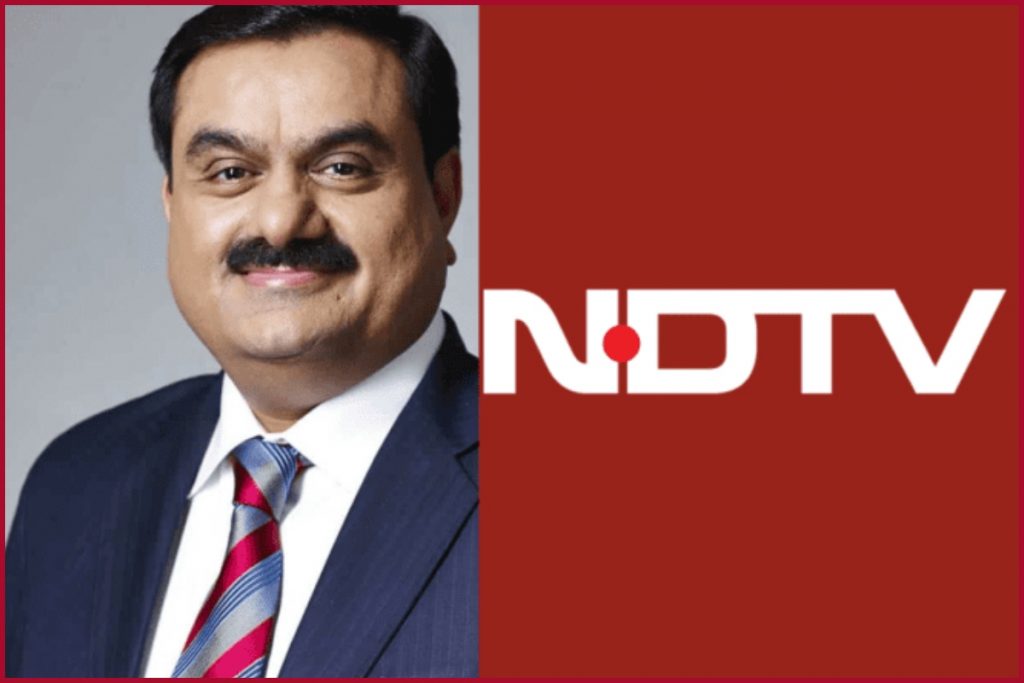New Delhi: The media arm of Gautam Adani-led Adani Group has taken an indirect ownership in nation’s leading television channel by acquiring 29.18% stake in NDTV’s promoter company and is set to launch open offer to buy another 26% stake in the company.
However, a day after the news became public, the NDTV said that the business conglomerate acted without the consultation & consent of company owners Prannoy Roy & Radhika Roy, the owners & promoters of nation’s leading media house.
If the deal is done, it will make the Adani group the de-facto owner of NDTV group and will squeeze out Roy couple as the owners of company.
At the centre of the deal is company named Vishvapradhan Commercial Private Limited (VCPL), which has bought stake in the company RRPR. In 2009, Prannoy & Radhika Roy took corporate loan of Rs 403.85 crore on behalf of RRPR from VCPL, granting it rights to 99.99% shares of RRPR if it wished.
The takeover of NDTV by Asia’s richest person has been dubbed as hostile takeover on netizens.
What is hostile takeover & how it is done
A hostile takeover means that a foreign/alien entity moves stealthily/aggressively to take over another company without the agreement or consent of the targeted firm.
The hostile takeover can be done by various methods – proxy vote, tender offer or a large stock. In tender offer, the aggressor buys shares from the shareholders of that company at higher price than market price.
In Adani Vs NDTV, the former chose to acquire TV channel via large stocks.
Hostile takeovers in corporate world
There are couple of hostile takeovers in Indian corporate history.
India Cements taking over Rassi Cements was a classic case of hostile takeover in corporate sector. This takeover happened in 1998. BV Raju was ‘forced’ to sell 32% stake in Rassi Cemens to India Cements.
Larsen & Toubro Ltd (L&T) taking control of Mindtree Ltd is another case study of hostile takeover. The L&T raised its stake in Mindtree to 60% by buying 31% additional stake for ₹4,988.82 crore through an open offer. As the L&T launched aggressive bidding, couple of large investors rushed to sell their holdings. And, as the L&T gained 60% stake in the latter, it became the de-facto owner of software company.

